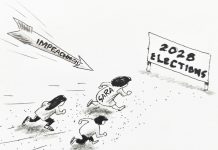Filipinos feel the sting at each gas station, supermarket checkout, and electricity bill—not just of inflation, but of the creeping, dismal draining of their own government’s corruption. It is a conflict that no election or rearrangement has broken, only fueled, and each new scandal is a reminder of how deep the rot has penetrated. And now, Filipinos are not only furious, desperate, and tired of shelling out for the indulgence of those who promised to serve.
The irony is not more acute. The Philippines, which never misses sending its remittances to the government, is headed by a state that never misses pocketing its receipt. Taxes squeezed out of each glistening hour of work, each remittance by an OFW, and each centavo milked from the poor man’s rice allowance are funneled through an apparatus of lies so advanced it is almost an art form. Billions disappear from accounts like steam vanishing from boiling water, and citizens wonder if integrity has just died in government service.
Each time the Commission on Audit uncovers a shady deal or a senator’s yap of “billions unaccounted for,” there is a momentary burst of indignation—and then, nothing. The melodrama goes on, the probes are at a standstill, and the plunderers walk free, maybe even get promoted. We have become too accustomed to the farces of exposure and too exhausted to demand closure. Corruption has become the national wallpaper: always there, ugly and visible, but so permanent that we’ve forgotten what clean walls look like.
When a tricycle driver pays his taxes, he expects that, in return, roads will be fixed, hospitals supplied, and schools equipped. Instead, he drives over potholes as deep as his bank account, if he ever has, as politicians show up for ribbon-cutting ceremonies in SUV motorcades. This daily contradiction—the difference between what the people pay and what the government gets—breeds not only poverty, but despair. And despair, once entrenched, spreads its disease to the very center of a nation.
Meanwhile, the government continues to borrow trillions more foreign debt to finance so-called “development.” But who, exactly, develops? Not the ordinary citizen, whose children read under dripping roofs and whose health is at risk from underfunded hospitals. These debts are not figures; they are chains that bind generations to come to an obligation they did not create. The interest rates will survive regimes, but the money itself, as the past has demonstrated, disappears into the coffers of the private sector long before the first public works have broken ground.
There is also a moral rot that infects, as well as the fiscal one. When criminals are in power, they indoctrinate the populace that honesty is foolishness. When they shirk responsibility, they mutter that honor is foolishness. Corruption insidiously pervades into the innermost recesses of life—the clerk who demands a “facilitation fee,” the policeman who takes a bribe, the voter who sells a vote for a handful of pesos. It becomes not just a political fiasco, but a sickness of culture, a disease that destroys our national conscience.
And yet the Filipino spirit perseveres, bruised and exhausted. People continue to get up early, stand in line at the crack of dawn to work, and dream of a country that values integrity and sanctions thievery. But patience, being a finite quality, has its end. The grumblings of unrest increase with each scandal revealed and each phony investigation. One hears nigh, in the cadence of shared grievance, the diligent accumulation of something which will one day blow not just in anger, but in shared desire for dignity.
If redemption is to be, it will have to start not with grandiloquent orations, but with purging the conscience, first among our leaders, and then from us. We need to stop making corruption appear as a birth defect and begin making it a national emergency. Desperation on the part of people now is not merely a wail of wretchedness; it is an alarm. For when at last hope does dry up, experience has proved that even the most long-suffering of peoples will rise in rebellion, not out of revenge, but out of long-delayed justice.




